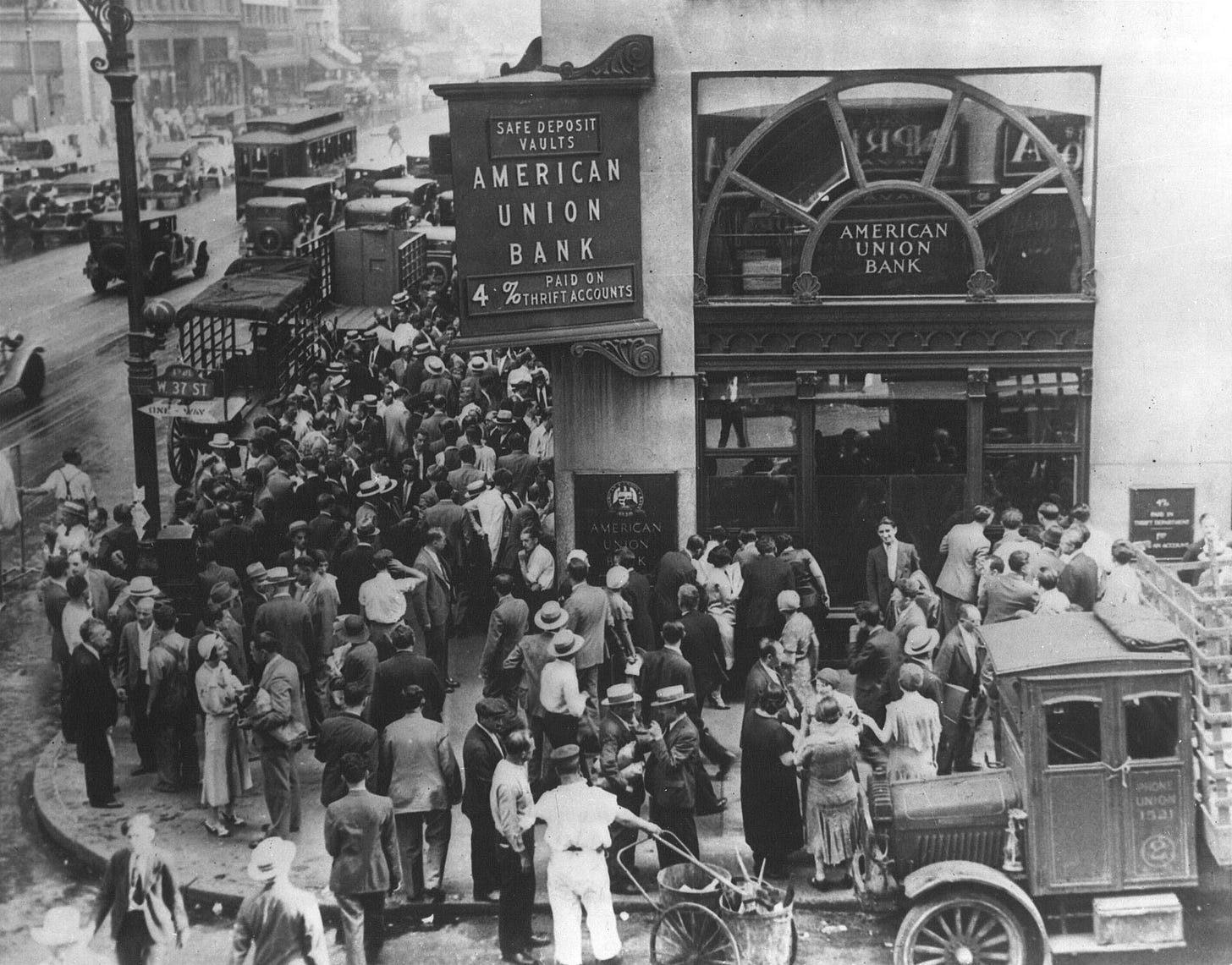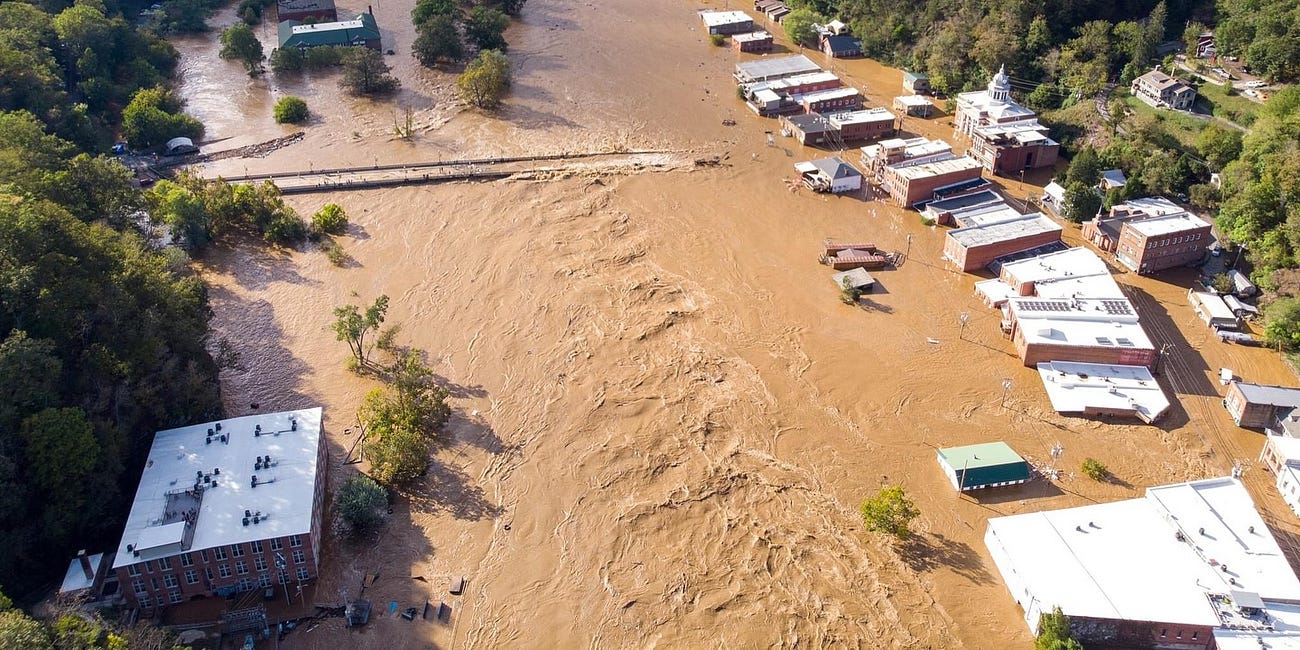How long will your window stay open?
Acting while we still can.
When Hurricane Helene hit last year, I wrote a thread that began “Climate chaos is coming for us.”
It got such a good response that I decided to edit the thread into a full letter:
That was a year ago.
In the… eventful year since, folks have asked how my understanding of the future has changed. There’s a lot to say, because I think we have actually passed over a threshold where much of what we fought for over the last decades is no longer realistically possible… and the emerging possibilities are hard to get a grasp on.
We have lost the chance for an orderly transition. We have failed to respond to climate discontinuities, we face huge losses from disasters and brittleness. In the U.S. some of the worst people around now have substantial control over climate policy and response. We urgently need a fundamental reinvention of the project of climate advocacy.
What may have changed the most, though, is what all this means to each of us, our families, and our communities. Yes, we are on our own — which is alarming enough in a growing planetary crisis — but we’re also working with systems, skills, tools and resources that no longer work the way they (up until recently) did. Our own capacity to act may be less durable than we’d hoped. The more we think about what to do, the more urgent the pace of change becomes. The window for action is slowly closing.
I tried to get at some of this last night, in a new thread that’s getting some very positive response:
Here’s a key bit, from the middle (please excuse the janky social media syntax):
“This bottleneck is an example of a much larger shift we each, and all, face: an erosion of personal capacities as climate/ecological discontinuity bites down. Many things we’re used to being able to do are going to get harder to do, even when they seem unrelated to ‘environmental issues.’
“…And our [societal] capacity to ruggedize and buffer against the unprecedented is limited. We could grow [that capacity] but we’re mostly doing the opposite. Denying, delaying, cutting corners, cooking the numbers. And each of these systems is dependent on the others: Interconnected, growing brittleness.
“Now, all of this brittleness could explode in a catastrophic reckoning, triggering the collapse of civilization. The more likely scenario is the steady wearing down of these systems’ capacities to serve us. Outcomes we now take for granted get more expensive, less reliable, slower to achieve.
“So, just at the moment we find ourselves thrown back on our own resources to ready ourselves for climate chaos, our capacity to do that preparation is slowly deflating. And many policy decisions being made right now, especially in the US, are worsening the leak.
“…We look at climate refugee camps and billionaire bunkers and imagine ourselves in a sort of secure middle zone — with the power to respond if and when the crisis becomes unignorable. But the nature of this crisis is to chip away at our capacities to act before its severity compels us to act.
“The things we imagine ourselves ready to do when needed — relocate, harden our homes, change our careers, shift our retirement plans — may not be options when the time comes.”
I plan to return to this theme more in the coming months, because I think it’s vital for us to reckon with. Climate chaos is accelerating, much of our world is increasingly brittle, we’re faced with choosing strategies for discontinuous problems, and both public and individual capacities are eroding. Even when we plan our responses, we’re often working with outdated assessments of our (now generally diminishing) capacities. Knowing when we are is the soul of acumen, now.
If you are serious about learning how to craft successful strategies for this crisis, my Personal Climate Strategy Workshop starts this Tuesday. It’s a foresighted, evidence-based, experience-informed approach to understanding the discontinuities we face, unpacking the options we each have, and evaluating your own life and values to find a strategy that will work for you.
Registration closes Sunday night.
P.S.: Some folks have asked for a payment plan option, and I’m happy to announce that we’re offering a six-month plan, if that works better for you.
P.P.S.: Some have also asked when the next one will be. The next Workshop likely won’t be offered until Spring 2026 (precise dates TBD).



